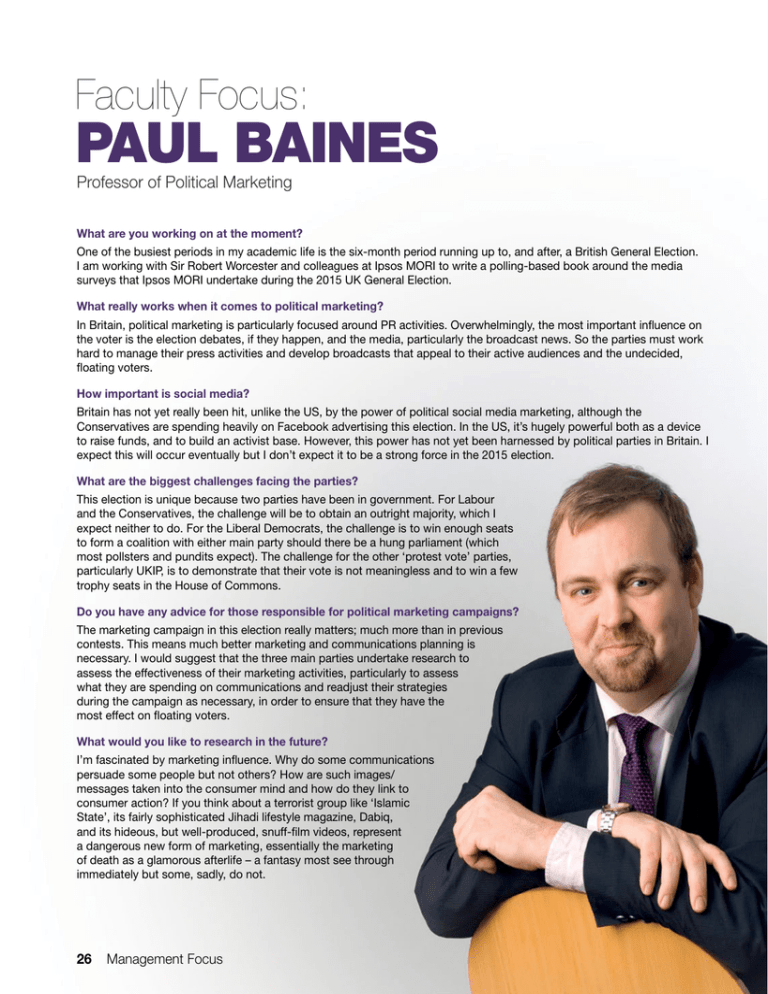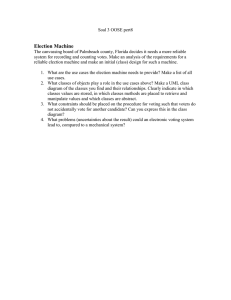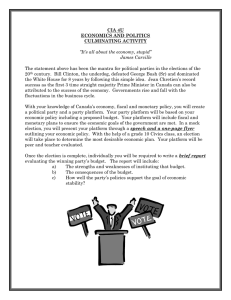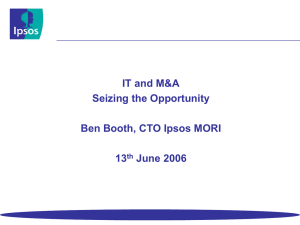PAUL BAINES Faculty Focus: Professor of Political Marketing
advertisement

Faculty Focus: PAUL BAINES Professor of Political Marketing What are you working on at the moment? One of the busiest periods in my academic life is the six-month period running up to, and after, a British General Election. I am working with Sir Robert Worcester and colleagues at Ipsos MORI to write a polling-based book around the media surveys that Ipsos MORI undertake during the 2015 UK General Election. What really works when it comes to political marketing? In Britain, political marketing is particularly focused around PR activities. Overwhelmingly, the most important influence on the voter is the election debates, if they happen, and the media, particularly the broadcast news. So the parties must work hard to manage their press activities and develop broadcasts that appeal to their active audiences and the undecided, floating voters. How important is social media? Britain has not yet really been hit, unlike the US, by the power of political social media marketing, although the Conservatives are spending heavily on Facebook advertising this election. In the US, it’s hugely powerful both as a device to raise funds, and to build an activist base. However, this power has not yet been harnessed by political parties in Britain. I expect this will occur eventually but I don’t expect it to be a strong force in the 2015 election. What are the biggest challenges facing the parties? This election is unique because two parties have been in government. For Labour and the Conservatives, the challenge will be to obtain an outright majority, which I expect neither to do. For the Liberal Democrats, the challenge is to win enough seats to form a coalition with either main party should there be a hung parliament (which most pollsters and pundits expect). The challenge for the other ‘protest vote’ parties, particularly UKIP, is to demonstrate that their vote is not meaningless and to win a few trophy seats in the House of Commons. Do you have any advice for those responsible for political marketing campaigns? The marketing campaign in this election really matters; much more than in previous contests. This means much better marketing and communications planning is necessary. I would suggest that the three main parties undertake research to assess the effectiveness of their marketing activities, particularly to assess what they are spending on communications and readjust their strategies during the campaign as necessary, in order to ensure that they have the most effect on floating voters. What would you like to research in the future? I’m fascinated by marketing influence. Why do some communications persuade some people but not others? How are such images/ messages taken into the consumer mind and how do they link to consumer action? If you think about a terrorist group like ‘Islamic State’, its fairly sophisticated Jihadi lifestyle magazine, Dabiq, and its hideous, but well-produced, snuff-film videos, represent a dangerous new form of marketing, essentially the marketing of death as a glamorous afterlife – a fantasy most see through immediately but some, sadly, do not. 26 Management Focus


